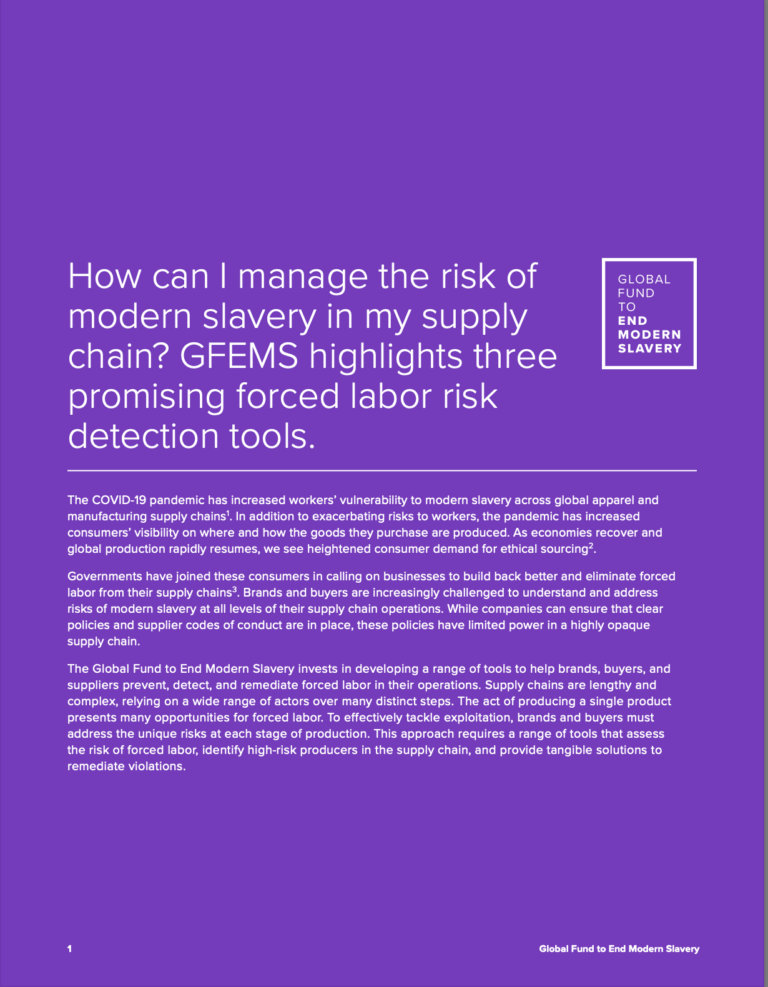The COVID-19 pandemic has increased workers’ vulnerability to modern slavery across global apparel and manufacturing supply chains1. In addition to exacerbating risks to workers, the pandemic has increased consumers’ visibility on where and how the goods they purchase are produced. As economies recover and global production rapidly resumes, we see heightened consumer demand for ethical sourcing2.
Governments have joined these consumers in calling on businesses to build back better and eliminate forced labor from their supply chains3. Brands and buyers are increasingly challenged to understand and address risks of modern slavery at all levels of their supply chain operations. While companies can ensure that clear policies and supplier codes of conduct are in place, these policies have limited power in a highly opaque supply chain.
The Global Fund to End Modern Slavery invests in developing a range of tools to help brands, buyers, and suppliers prevent, detect, and remediate forced labor in their operations. Supply chains are lengthy and complex, relying on a wide range of actors over many distinct steps. The act of producing a single product presents many opportunities for forced labor. To effectively tackle exploitation, brands and buyers must address the unique risks at each stage of production. This approach requires a range of tools that assess the risk of forced labor, identify high-risk producers in the supply chain, and provide tangible solutions to remediate violations.

